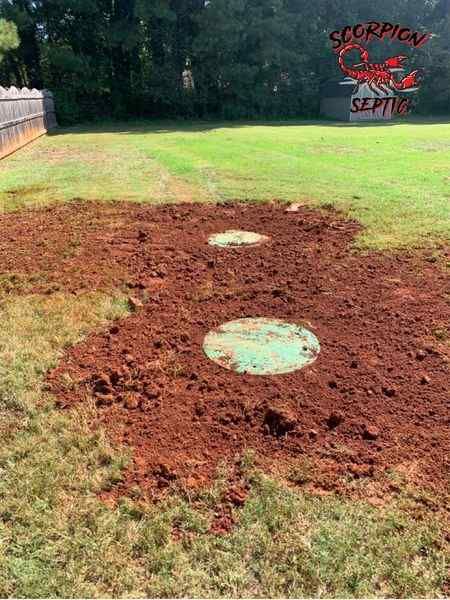Anyone who shells out money for a new septic tank wants it to go the distance. You don't want to purchase a new one every three or four years, you want it to last for decades.
For that to happen, you have to know how to maintain a septic tank. Here, Scorpion Septic has provided the ultimate guide to maintaining your septic tank for long-term performance.
There are quite a few things you might not have experience dealing with, and that's where we can step up to the plate to help you out. Call Scorpion Septic now to talk to one of our septic experts ASAP. Contact us today!

Understanding the Septic System You Have
The first thing to do before tackling the rest of this guide is to understand the septic system you have, not necessarily the septic system you want.
First, find out where your septic tank and drain field are located. If you recently bought your property and don't have access to the relevant records, you should have a licensed septic specialist come through to inspect and map it for you.
Next, learn your tank's maximum capacity. How much waste is it meant to hold at its peak? Does it have a bit more room for water overflow? Where are the drain lines located? These are important questions to ask a professional if you're unsure. This information will help you to set a maintenance schedule that you can stick to, avoiding expensive emergency repairs later on.
Conserving Water Where You Can
No matter how big and tough your septic system might be, it can only handle so much water at a time.
Overloading your system with water reduces the efficacy of its water breakdown processes and increases the chance of a backup. Plus, overflow can lead to drain field flooding, which leads to even more backup.
Here are some simple and effective water-saving habits:
- Fix any leaks in toilets, faucets, and elsewhere as soon as you find them.
- Installing low-flow toilets and water-efficient appliances goes a long way.
- Only run your dishwashers and washing machines with full loads.
- Space out loads of laundry as much as possible instead of running the machine back-to-back.
Using less water means lower strain on your septic system overall, allowing more time between pump-outs.
Watch What You Flush and Drain
Modern septic systems rely on beneficial bacteria to break down waste. Introducing anything that kills bacteria or can potentially clog the system can cause issues over time.
It's best practice to never flush or drain:
- "Flushable" antibacterial wipes
- Cooking grease, fats, or oils
- Coffee grounds or eggshells
- Paper towels or diapers, along with feminine hygiene products
- Harsh cleaning chemicals
- Paint or industrial fluids like solvents or car oil
If you're unsure if a product is flushable and septic-system safe, odds are that it probably isn't. Make sure that anything you use to clean your toilets and drains is a septic-safe cleaning product that won't cause any damage.
Keep Your Drain Field Clear
The septic system's drain field is the area where liquid from the tank disperses into the soil for natural filtration. If damaged or compacted, it can't clear the tank correctly.
If you want to maintain its efficacy, keeping the drain field clear of debris is important for septic system upkeep.
Basically, don't cover your drain field with a parked car, and definitely don't build anything on top of it. Keep tree roots and thick shrubs from growing on top of it as well because they can clog up the pipes under the dirt.
Lastly, diverting downspouts and surface water to another area of your property is essential to avoid oversaturation.
Schedule Regular Maintenance
You might be wondering, in addition to all of the things you can do yourself listed above, how often should septic tank be pumped?
Establishing a regular maintenance schedule is probably the most important step to take to maintain your system. Regular pumps every three to five years are a non-negotiable; they need to happen in order to keep your system up and running.
However, you should also schedule regular measurements for scum and sludge every one to two years. This might seem like a lot, but it'll save you a ton of money in the long run.
Also, an essential part of regular septic tank maintenance is keeping good records of any upkeep that you've had done to the system. Having those records on hand will help any professional who comes through to take a look at your tank, providing much-needed context for what they're seeing in the moment.
Only Rely On the Experts!
There are a ton of septic tank "specialists" out there who don't actually have the experience to deal with the variety of systems and problems that can crop up in the field.
With Scorpion Septic Services, you don't ever have to worry about that. We have the experience necessary to tackle whatever issues you're facing, from drain field overflow to clogged pipes and broken tanks.
Schedule regular septic tank maintenance with the experts at Scorpion Septic today! Call us now for a free quote!

